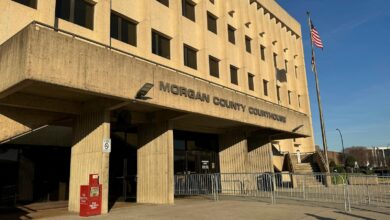What to know about birthright citizenship as Supreme Court weighs blocks on Trump’s order to end it

The Supreme Court on Thursday heard oral arguments over President Donald Trump’s emergency request to roll back nationwide injunctions blocking his executive order to end birthright citizenship. This rare May sitting of the court sets the stage for a decision by this summer on whether Trump can move forward with plans to limit U.S. citizenship only to children born on American soil to lawful permanent residents.
The case is also expected to address the legality of individual district court judges single-handedly blocking a presidential policy nationwide. Trump is seeking to dissolve judicial orders preventing mass federal layoffs, funding freezes, and expedited deportation protocols.
For more than a century, courts and the government have interpreted the 14th Amendment’s citizenship clause to apply to anyone born in the U.S., regardless of the citizenship status of a child’s parents. The Amendment, ratified after the Civil War, states that all “persons born or naturalized in the United States, and subject to the jurisdiction thereof, are citizens of the United States and of the state wherein they reside.”
Solicitor General D. John Sauer kicked off the first Supreme Court oral argument over Trump’s second-term policies by arguing that the ability of one district judge to issue a nationwide order creates a fundamentally unfair legal playing field for the government.
“Our primary contention is that the citizenship clause related to the children of former slaves, not to illegal aliens who weren’t even present as a discrete class at that time,” he told the justices. Sauer said that national injunctions force district judges to rush their “high stakes, low information decisions,” encourage forum shopping, and prevent the “percolation of novel and difficult legal questions.”
“They operate asymmetrically, forcing the government to win everywhere, while the plaintiffs can win anywhere,” said Sauer, who last year argued on behalf of Trump in a personal capacity to push for presidential immunity.
His claim was immediately met with skepticism from Justice Sonia Sotomayor, who suggested that such a theory would not only limit the ability of the district court but also the Supreme Court from issuing nationwide relief.
“That makes no sense whatsoever,” she said before making an analogy to when the balance of power shifts in Washington.
“When a new president orders that because there’s so much gun violence going on in the country, and he comes in and he says, ‘I have the right to take away the guns from everyone,’ and he sends out the military to seize everyone’s guns. We and the courts have to sit back and wait until every name plaintiff gets or every plaintiff whose gun is taken comes into court?” she asked.
On the issue of the legality of Trump’s executive order to limit U.S. citizenship only to children born on American soil to lawful permanent residents, Sotomayor was clear on where she stood. The order, she said, was unlawful. Justice Sonia Sotomayor made a bold statement during a recent Supreme Court hearing, arguing that the executive order in question violated four Supreme Court precedents. She expressed her concern that allowing the executive branch to universally violate these holdings without judicial intervention would set a dangerous precedent.
Sotomayor’s remarks came during a heated exchange with General Sauer, the government’s lawyer defending the executive order. Justices Neil Gorsuch and Amy Coney Barrett also joined in the discussion, questioning the potential consequences of eliminating nationwide injunctions.
Barrett raised the issue of prolonged unlawful executive orders, asking whether there was a mechanism in place to prevent such orders from remaining in effect for an extended period before the Supreme Court could rule on their legality. Sauer argued that the normal court process, guided by clear Supreme Court precedent, would ultimately resolve such issues in a timely manner.
Justice Elena Kagan expressed concern about the impact of abolishing nationwide injunctions, suggesting that it could lead to chaos in the court system. She pointed out that individual plaintiffs affected by the executive order might be forced to file lawsuits in multiple courts across the country, causing unnecessary confusion and delays.
Sotomayor echoed Kagan’s concerns, emphasizing the importance of upholding precedent and the Constitution. She argued that lower courts had already ruled on the issue at hand, highlighting the violation of both precedent and the 14th Amendment.
In response, Sauer defended the administration’s actions, claiming that lower courts were making hasty judgments that ignored the true intent of the 14th Amendment. He argued that the amendment was intended to grant citizenship to the children of slaves, not to the children of illegal immigrants.
Despite the back and forth between the justices and the government’s lawyer, some members of the court seemed open to the idea of limiting nationwide injunctions. The debate highlighted the complex legal issues at play and the challenges of balancing the power of the executive branch with the need for judicial oversight.
As the hearing concluded, it remained unclear how the Supreme Court would rule on the legality of the executive order. The case raised important questions about the limits of executive authority and the role of the judiciary in upholding the rule of law. Only time will tell how this contentious issue will ultimately be resolved. Chief Justice John Roberts highlighted the Supreme Court’s improved efficiency in handling cases, noting that they have been able to hear cases much more expeditiously. He specifically referenced a legal challenge related to TikTok that made its way through the court in a matter of months. This efficiency is a positive development for the court, allowing for timely resolution of important legal issues.
Justice Clarence Thomas also weighed in on the issue, pointing out that the concept of universal injunctions was not a feature of the legal system until the 1960s. This raises questions about the impact and effectiveness of such injunctions in contemporary legal practice.
Justice Ketanji Brown Jackson expressed concerns about limiting federal judges from issuing nationwide orders, arguing that it could create a system of justice where individual citizens can only protect their rights if they have the resources to file lawsuits. She emphasized the importance of upholding the rule of law and ensuring access to justice for all individuals.
The discussion also touched on the challenges faced by the government in implementing policies due to the prevalence of nationwide injunctions. There were contrasting views on whether delays in legal proceedings could lead to the enforcement of unlawful policies or if they were necessary for a thorough examination of legal issues.
Kelsi Corkran, a representative for individual plaintiffs, argued against the government’s proposal to restrict nationwide orders, stating that they are essential for protecting fundamental constitutional rights. She emphasized the importance of allowing legal relief in cases where individuals could be irreparably harmed by unlawful policies.
Overall, the debate surrounding nationwide injunctions raises important questions about the balance between expediency and thoroughness in legal proceedings. The Supreme Court’s consideration of these issues reflects the complexities of the legal system and the ongoing efforts to ensure justice for all individuals. The debate over birthright citizenship has been a contentious issue in the United States, with the Trump administration taking a hardline stance on the matter. The administration argues that birthright citizenship is unconstitutional, sparking legal battles and challenges from various groups.
White House press secretary Karoline Leavitt stated during a briefing that the administration believes birthright citizenship is unconstitutional. This sparked a series of lawsuits from different groups, including 22 states, immigrant advocacy organizations, and pregnant women whose soon-to-be-born children would be affected by the policy.
Immigrant advocates argue that birthright citizenship is a fundamental principle of the nation, ensuring that all individuals born on U.S. soil are equal regardless of their parentage. They highlight the importance of this principle in ensuring that all individuals have the right to full participation and belonging in their home country.
According to government data, an estimated 150,000 children are born each year in the U.S. to parents who are not legal permanent residents. These children could potentially be affected by the administration’s policy, leading to a shadow existence with the constant risk of deportation.
Federal judges in Maryland, Massachusetts, and Washington state, as well as three federal appeals court panels, have issued nationwide injunctions to block the Trump administration’s policy on birthright citizenship. These judges have deemed the policy unconstitutional and in violation of high court precedent.
The issue of birthright citizenship has historical roots, with the Supreme Court ruling in 1898 in the landmark case U.S. v Wong Kim Ark that children born to non-citizens on U.S. soil are Americans under the law. This ruling established the principle that individuals born on U.S. soil are entitled to citizenship, regardless of their parents’ status.
The current legal battle over birthright citizenship is focused on the scope of injunctions issued by district court judges, rather than the constitutionality of the executive order itself. The Trump administration has raised concerns about the use of nationwide injunctions, arguing that they should only apply to the specific plaintiffs involved in the case.
The Supreme Court is now tasked with determining the parameters for when nationwide injunctions are warranted and when they are not. This case could have far-reaching implications for future legal battles and executive branch power.
As the debate over birthright citizenship continues to unfold, the Supreme Court’s decision in this case will likely set a precedent for how such issues are addressed in the future. The outcome of this case could have significant implications for the rights of individuals born on U.S. soil and the broader principles of equality and justice in the nation. On October 10, 2025, a significant legal battle unfolded as immigrant advocates, civil rights organizations, and Democratic state attorneys general raised concerns about the potential chaos that could arise from blocking Trump’s attempt to redefine birthright citizenship. The issue at hand was the possibility of the birthright citizenship being blocked in some areas but not others, or exempting certain individuals while affecting others.
Legal experts warned that such a situation could lead to confusion and inconsistencies, especially in a policy as fundamental as citizenship rules, which are meant to be uniform across the nation. The question of whether nationwide injunctions should be implemented to address this issue was raised, with some scholars suggesting that it may be impossible to separate this question from the underlying dispute over Trump’s actions.
Constitutional law scholar Josh Blackman predicted that the court would have to address the entire matter rather than just the scope of the injunction question, and he believed that the ruling would likely be against Trump. While Trump may receive a few votes in his favor, the majority opinion was expected to go against his attempt to redefine birthright citizenship.
A decision on the case was anticipated to be reached by early summer, with the outcome carrying significant implications for the future of citizenship laws in the United States. The complexity of the legal arguments and the potential impact on individuals affected by the proposed changes underscored the importance of a thorough and fair resolution by the court.
This legal battle highlighted the ongoing debate over immigration policies and the rights of individuals born in the United States. As the case continued to unfold, it remained to be seen how the court would navigate the complex legal issues at stake and ultimately decide the fate of Trump’s attempt to alter the longstanding concept of birthright citizenship.





